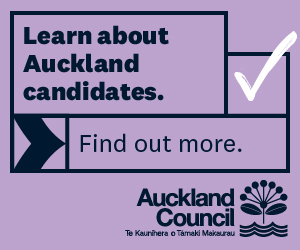
Papakura Local Board

Environment
Local governments play a central role in protecting the environment, reducing waste and safeguarding biodiversity. The worsening state of New Zealand’s lakes and rivers is a major challenge for local councils, which work with regional councils in the management of water resources in their area.

Environment
Local governments play a central role in protecting the environment, reducing waste and safeguarding biodiversity. The worsening state of New Zealand’s lakes and rivers is a major challenge for local councils, which work with regional councils in the management of water resources in their area.
Commit to supporting the Papakura Stream Restoration Project to improve the quality and health of the stream and wider catchment.
Establish waste segregation bins in town centres for a sustainable and healthy town to support the waste management and minimisation goals.
Once again consultation and process is a basic human right eg Three Waters where there was a lack of consultation and transparency to the people.
We need policies that need to be monitored by unbiased regulators with no conflict of interest can be measured and is transparent.
Infrastructural changes need to be fit for purpose which means applicable measurements to provides accurate data which overtime shows.
Expand the regeneration of native riparian strips around polluted waterways.
Boost native plants within current park facilities to focus on shade-producing species and those that build natural habitats for fauna.
Support communities to develop a network of Zero Waste Hubs for reuse, repair, recycling, composting, and community engagement.
Commit to continued support for environmental projects such as the Papakura Awa/Stream restoration.
Actively plant trees that will provide shade canopy for Papakura reserves and parks, and help remove carbon dioxide from the atmosphere.
Consider removing user-pays rubbish collection fees which will help lessen household costs and decrease illegal rubbish dumping.
Commit to supporting the Papakura Stream Restoration Project to improve the quality and health of the stream and wider catchment.
Establish waste segregation bins in town centres for a sustainable and healthy town to support the waste management and minimisation goals.
Once again consultation and process is a basic human right eg Three Waters where there was a lack of consultation and transparency to the people.
We need policies that need to be monitored by unbiased regulators with no conflict of interest can be measured and is transparent.
Infrastructural changes need to be fit for purpose which means applicable measurements to provides accurate data which overtime shows.
Expand the regeneration of native riparian strips around polluted waterways.
Boost native plants within current park facilities to focus on shade-producing species and those that build natural habitats for fauna.
Support communities to develop a network of Zero Waste Hubs for reuse, repair, recycling, composting, and community engagement.
Commit to continued support for environmental projects such as the Papakura Awa/Stream restoration.
Actively plant trees that will provide shade canopy for Papakura reserves and parks, and help remove carbon dioxide from the atmosphere.
Consider removing user-pays rubbish collection fees which will help lessen household costs and decrease illegal rubbish dumping.
Mayor
Compare the mayoral candidates in your area
Local council
Compare the candidates for your city or district council
Regional council
Compare the candidates for your regional council
Local board
Compare the candidates for your local or community board








